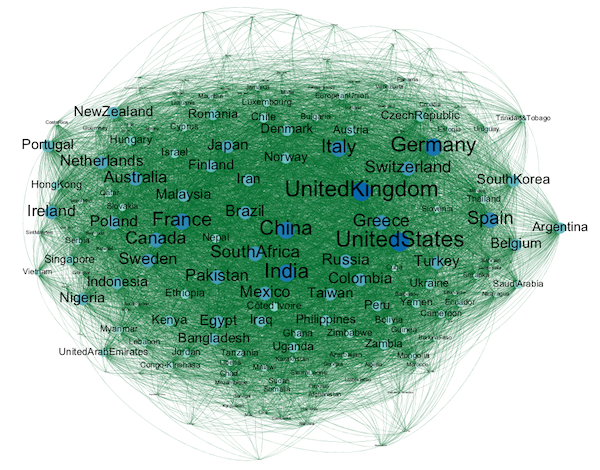
The scientific community in some African countries is seeking for closer ties to the Western European and North American communities.

The scientific community in some African countries is seeking for closer ties to the Western European and North American communities.

Open Science is becoming increasingly popular globally and provides unprecedented opportunities for scientists in Africa, South East Asia, and Latin America.

The scientific community has been flooded with well-intended ideas and concrete attitudes to tackle the openness in science, or better its lack of openness. More specifically, attempts to guarantee access to otherwise ‘protected’ material have been the obsession of many (mostly early-career) researchers.

You initiated the #DontLeaveItToGoogle campaign after Google brought out a search engine for scientific datasets. What was the reason to start such an initiative? Research data is an important scientific output and there are many benefits to research data sharing, including data reuse and aggregation. But discovery is a big problem, even bigger than in literature.

Open Science is a strange concept. Depending on who you speak to, it can be a set of scientific practices, a social justice issue, a complete fad, part of a political capitalist regime, or just a different but undefinable form of traditional science. This variety in thought is at once both a strength of Open Science, and its greatest weakness.

German universities and research institutions are playing a prominent role in the global trend of shifting academic publishing to open access. A nationwide consortium of scientific institutions, known as DEAL, aims to encourage academic publishers to adopt new licensing agreements for open access publication of scholarly content.

Last week the The Royal Society issued a joint statement about the importance of the international nature of research along with national academies across the UK and Europe. At the same time they started the hashtag #ScienceIsGlobal on Twitter , where individuals reported what nationalities are collaborating in their labs. I, and many others, reported their lab’s composition using the emoji flags.
The Blue Obelisk mailing list has seen an interesting discussion on ambiguity in the term ‘open source’, triggered by a study by Beth Ritter Guth. For example, Jean-Claude Bradley performs ‘open source’ science (see his Useful Chemistry blog) who is not opposed to using closed source software, while the Blue Obelisk is about ‘open source’ software.
There are many ways to contribute to opensource software (OSS), programming only being one of them. I develop OSS, but use OSS too. For example, I am a big user of the Linux kernel, the KDE desktop, Kubuntu, Debian (I have unstable in a chroot), Firefox, Eclipse, Classpath, and many, many others. What these have in common, is that I generally have no time to look into the source code of these projects.
BioMed Central is setting up a new peer-reviewed, open access journal Source Code for Biology and Medicine. It will “encompass all aspects of workflow for information systems, decision support systems, client user networks, database management, and data mining” . Basically, anything that fits into chem-bla-ics. (Thanx to Werner, for pointing me to the website!) The ‘source code’ aspect is the interesting thing of this new journal.